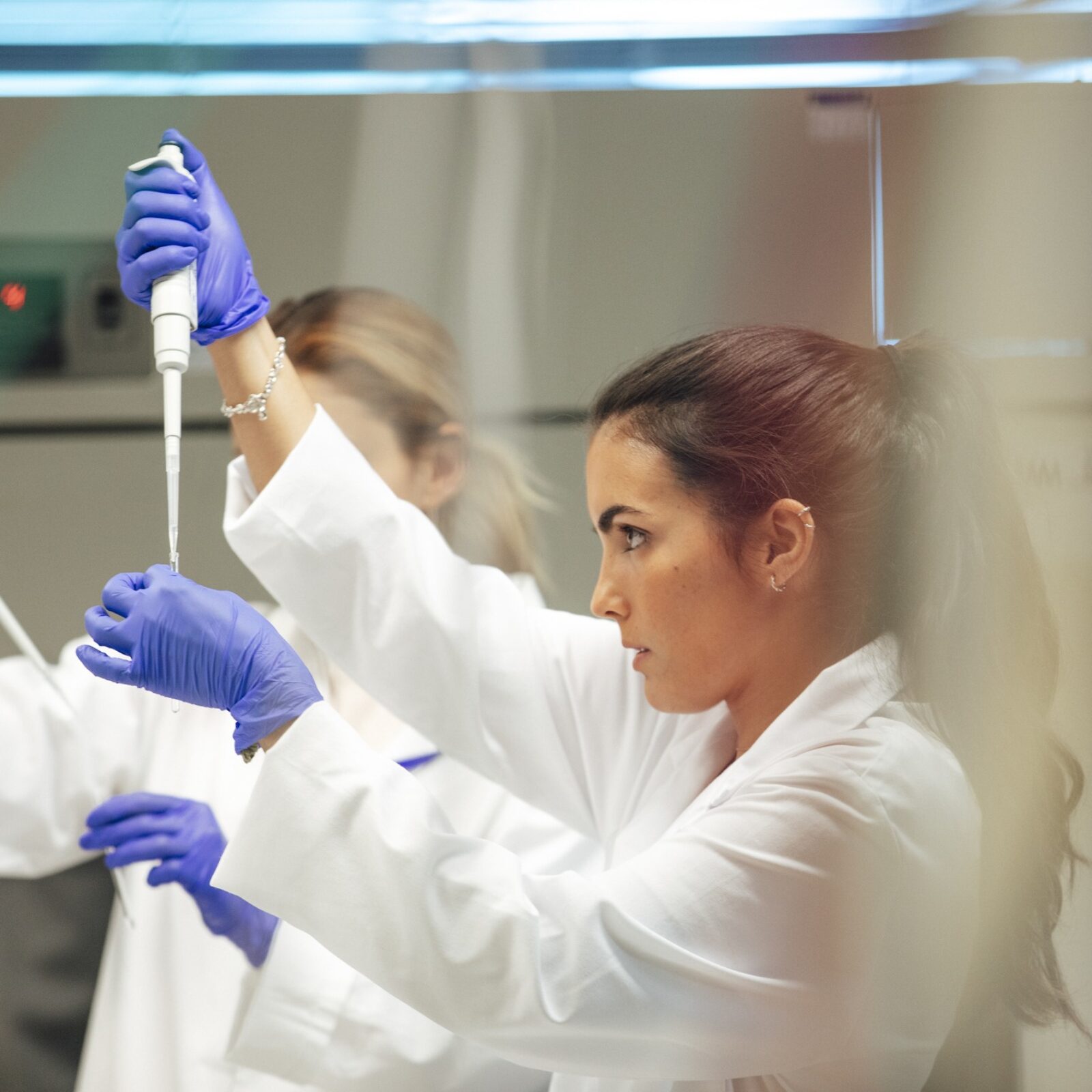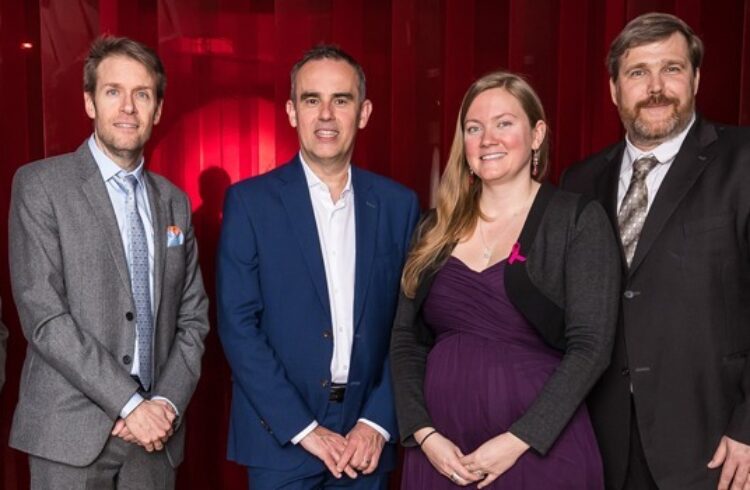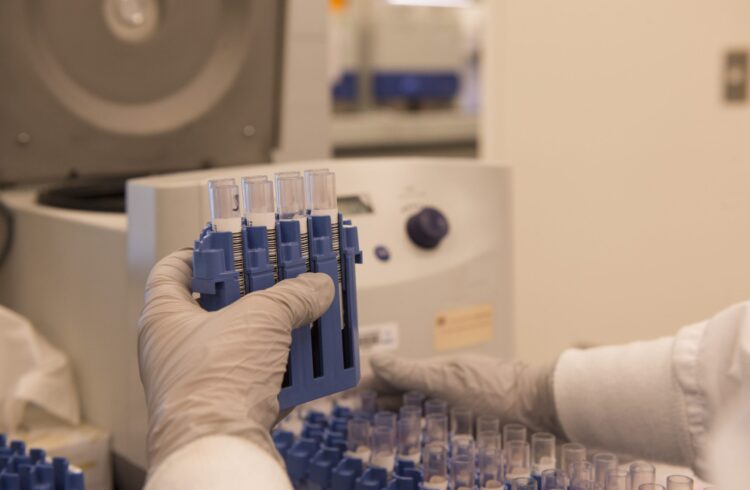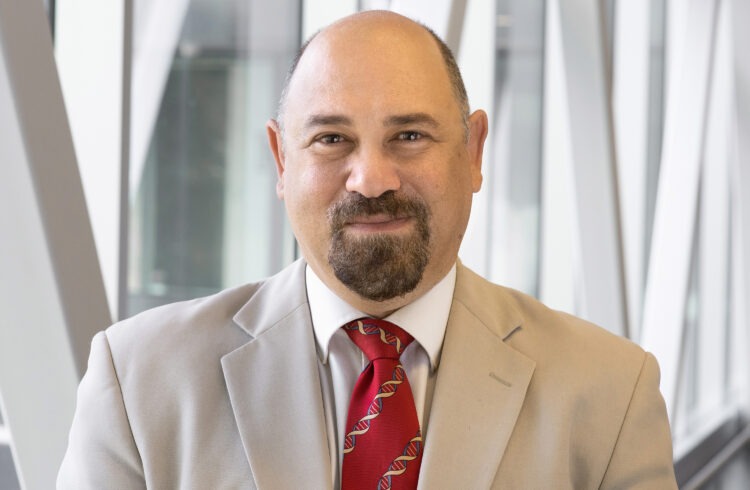The team of Dr. Manuela Santos, head of the Nutrition and Microbiome Laboratory at the CRCHUM and a member researcher at the Institute, is studying the impact of the gut microbiota on the pathophysiology of colorectal cancer and its response to treatment. This research project was made possible thanks to the financial contribution of the Institut du cancer de Montréal, which allowed the purchase of equipment necessary for the implementation of this research.
This study benefits from the multidisciplinary collaboration in the fields of microbiology, molecular oncology and bioinformatics at the CRCHUM, but also from the involvement of collaborators from the Université de Montréal, McGill University and the Université du Québec à Montréal. The research team working with Manuela Santos is composed of Dr. Carole Richard, Chief of Digestive Surgery at the CHUM, Dr. Roy Hajjar and members of the research staff.
Initially set up to understand the complications of surgical recovery in colon cancer patients, the study has expanded to include bowel recovery following surgery, management of anemia in patients, early colorectal cancer, prevention and recurrence of colorectal cancer, and inflammatory bowel disease.
The link between all of these areas of research lies in the analysis of the microbiome of patients when there is dysbiosis, an imbalance in the bacteria present in the gut. Santos, Richard and Hajjar are trying to demystify the role of specific bacteria in treating or preventing all these complications related to colorectal cancer surgery.
An overview of the components of this important research
When it comes to the treatment of colorectal cancer patients, surgery is often the main option. However, this major surgery sometimes leads to severe complications related to poor healing and leakage of intestinal contents at the surgical site, an event called anastomotic leakage. Using experiments based on analysis of patient microbiota before and after surgery, the research team was able to identify several specific bacteria, some potentially beneficial and others harmful, that impact healing. These notable findings could eventually lead to a treatment for these complications in the patient.
In inflammatory bowel disease, anastomotic leakage is not the only post-surgical complication that is under the researchers’ microscope. It is also the case of pouchitis, a severe inflammation often present in patients with ulcerative colitis, following surgery where the colon is removed and a reservoir is placed acting as a neo-rectum. To date, this chronic inflammation is controlled by antibiotics, suggesting the importance of analyzing the microbiota to find long-term solutions.
The cohort of patients participating in this study is also being followed to investigate the impact of oral iron intake on anemia. Santos points out that bacteria have diverse responses to iron supplementation, which is both essential and toxic, and these effects are felt in cancer development and intestinal inflammation.
Prevention, recurrence and early stage of colorectal cancer make up the other three aspects of the large ongoing study. All of the research team’s findings suggest that the key to understanding the role of the gut microbiota in colorectal cancer is key.
Although focused on colorectal cancer, the data from Manuela Santos’ team could benefit digestive surgery in general in the near future.
The Microbiome Program is generating impressive research discoveries. To financially support Manuela Santos’ team’s projects, it is possible to make a donation by mentioning her name in the donation form on our website because today’s research is tomorrow’s treatment.
Other news

Subscribe to our newsletter




